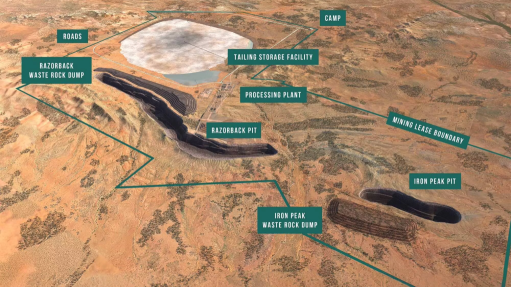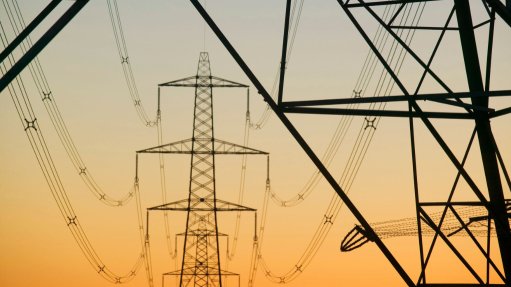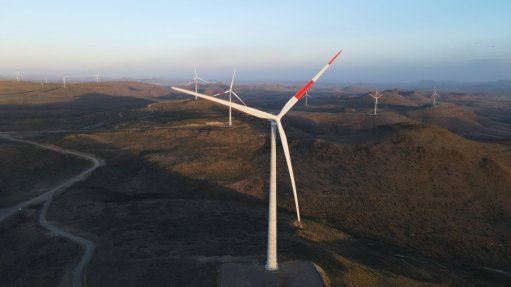Gauteng tables R493bn budget to support social services, township economy, energy crisis
The largest share of Gauteng’s R493.4-billion over the medium-term expenditure framework (MTEF) is set to support social services, the township economy, job creation and the energy crisis, said Gauteng Finance MEC Jacob Mamabolo on Thursday.
Presenting the province’s budget for 2023/24 to the legislature, he said that 83% of the provincial budget, amounting to R412-billion over the 2023 MTEF, was allocated to the social cluster.
“These resources will be used to drive social transformation in Gauteng and are already in the baselines of the departments,” he said.
The economic cluster will receive a total of R66.6-billion, or 13.5%, of the budget over the 2023 MTEF, while the governance cluster, which focuses on strengthening collaboration among all spheres of government, enhancing integrated planning for improved service delivery, accounts for R12.1-billion, or 2.5%, of the 2023 MTEF budget.
“The 2023 MTEF fiscal framework will see the provincial budget grow by a yearly average rate of 3%, from R158.945-billion in 2023/24 to R164.785-billion in 2024/25 and R169.703-billion in 2025/26,” Mamabolo commented.
Over the next three years the province will fund key priorities related to the townships, informal settlements and hostels, or TISH, programme, growing the economy, fighting crime and expanding basic services to the public.
“One of the key drivers of the township economy is entrepreneurship, as many people start their own businesses in order to generate income and create more employment opportunities for our people.
“By supporting the growth of the township economy, it is indeed possible to create new jobs, increase access to goods and services, and promote much-needed economic development in our communities,” he said.
A total budget of R7.68-billion has been allocated to improve infrastructure in townships, informal settlements and hostels in the 2023/24 financial year, including R3.5-billion that will go towards the provision of new, and the improvement of existing, infrastructure to enable the province to provide the required services.
“Some of the notable projects within the townships include the construction of housing units at Sebokeng Ext 28, construction of Sewer Pipelines and manholes at Mohlakeng-Pelzvlale, and Soshanguve South secondary school in Soshanguve.”
To improve the basic infrastructure services within the informal settlements in the province, a budget of R3.8-billion has been allocated to upgrade informal settlements such as Kwa Brown, Mamello, Piel’s Farm, Thabong, Pangoville (Munsieville), Bergsig and Ratanda.
About R322-million is allocated to the renovation and improvement of conditions of hostels, with George Goch, Denver, Jeppe, LTA Rethabile, Kwama-Siza, Dube, Orlando, Diepkloof and Orlando West some of the hostels set to be upgraded.
Further, an additional budget of R4-billion has been allocated to the Gauteng Department of Community Safety over the next three years to be used to train and absorb 6 000 crime prevention wardens.
“In addition to capacitating these crime prevention wardens with the necessary tools of trade, the resource allocation will also enable the acquisition of technological solutions to fight crime – such as drones and the leasing of helicopters to enhance the visibility of crime prevention efforts. Also included in this allocation is funding for fleet services to further capacitate traffic police to undertake their duties,” Mamabolo continued.
“We are still seized with the responsibility to manage real fiscal risks such as the energy supply crisis, inflationary pressures on costs of providing services, increasing pressure from accruals and low economic growth,” he added, noting that the energy supply challenge facing South Africa had become the single biggest threat to economic recovery and any potential future growth.
The Office of the Premier is working with Corporative Governance and Traditional Affairs, the Gauteng Provincial Treasury and the Gauteng Infrastructure Financing Agency (GIFA) to build in-house energy capacity to support efforts that the province and municipalities are making in finding lasting solutions to the current energy crisis.
“To this end, an amount of R1.2-billion in seed capital will be set aside by the Gauteng Provincial Treasury as announced by Premier [Panyaza] Lesufi during the State of the Provincial Address, to fund projects based on assessment of readiness to implement and value for money,” he said.
GIFA, together with its partners within the non-profit company (NPC) Bokomoso Ba Rona Initiative, is facilitating the creation of a sustainable post-mining economy in the West Rand region of Gauteng.
Through this Initiative, Sibanye-Stillwater and Far West Rand Dolomitic Water Association donated 30 000 ha of land to the NPC for the development of agroindustrial projects and commercial catalytic projects.
In 2022, GIFA issued a request for proposal to the market for the development of a Merafong Solar Farm Cluster, which will be located on the land donated to the NPC.
So far, GIFA has identified six independent power producers (IPPs) to develop 1 500 ha of this allocated land, and this has the potential of generating 800 MW. The process of allocating land parcels to the IPPs is underway and will be completed in March 2023 when lease agreements are signed.
GIFA is also concluding negotiations with a private party on Phase 1 of the rooftop solar photovoltaic (PV) project to generate close to 8 MW from selected hospitals.
“As part of addressing the energy crisis we are going ahead with Phase 2 of the rooftop solar PV project in government-owned properties especially education and health institutions. We will invite the developers as part of Gauteng’s response to the energy crisis,” he said.
Article Enquiry
Email Article
Save Article
Feedback
To advertise email advertising@creamermedia.co.za or click here
Press Office
Announcements
What's On
Subscribe to improve your user experience...
Option 1 (equivalent of R125 a month):
Receive a weekly copy of Creamer Media's Engineering News & Mining Weekly magazine
(print copy for those in South Africa and e-magazine for those outside of South Africa)
Receive daily email newsletters
Access to full search results
Access archive of magazine back copies
Access to Projects in Progress
Access to ONE Research Report of your choice in PDF format
Option 2 (equivalent of R375 a month):
All benefits from Option 1
PLUS
Access to Creamer Media's Research Channel Africa for ALL Research Reports, in PDF format, on various industrial and mining sectors
including Electricity; Water; Energy Transition; Hydrogen; Roads, Rail and Ports; Coal; Gold; Platinum; Battery Metals; etc.
Already a subscriber?
Forgotten your password?
Receive weekly copy of Creamer Media's Engineering News & Mining Weekly magazine (print copy for those in South Africa and e-magazine for those outside of South Africa)
➕
Recieve daily email newsletters
➕
Access to full search results
➕
Access archive of magazine back copies
➕
Access to Projects in Progress
➕
Access to ONE Research Report of your choice in PDF format
RESEARCH CHANNEL AFRICA
R4500 (equivalent of R375 a month)
SUBSCRIBEAll benefits from Option 1
➕
Access to Creamer Media's Research Channel Africa for ALL Research Reports on various industrial and mining sectors, in PDF format, including on:
Electricity
➕
Water
➕
Energy Transition
➕
Hydrogen
➕
Roads, Rail and Ports
➕
Coal
➕
Gold
➕
Platinum
➕
Battery Metals
➕
etc.
Receive all benefits from Option 1 or Option 2 delivered to numerous people at your company
➕
Multiple User names and Passwords for simultaneous log-ins
➕
Intranet integration access to all in your organisation

















